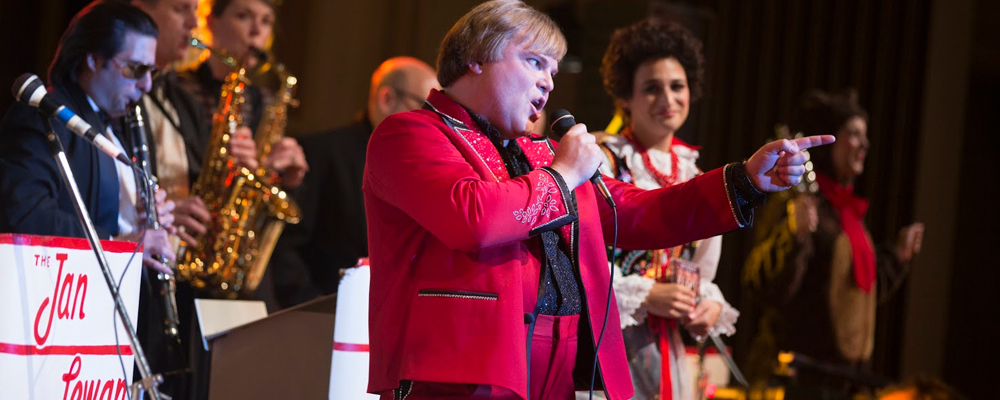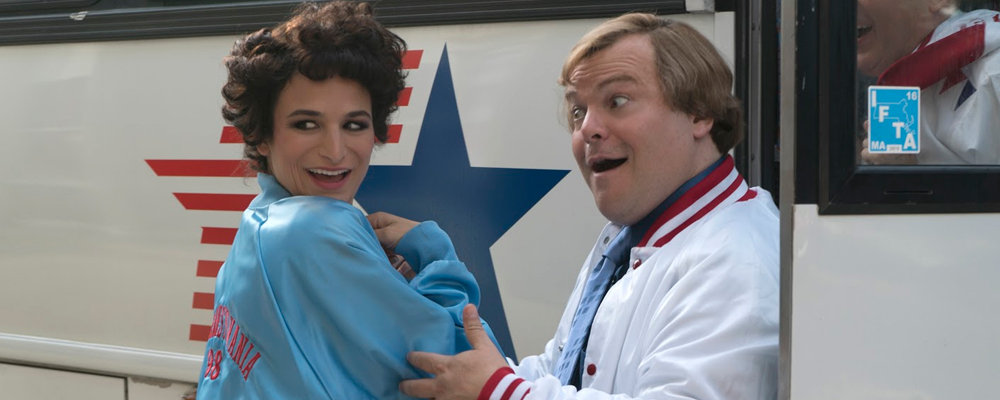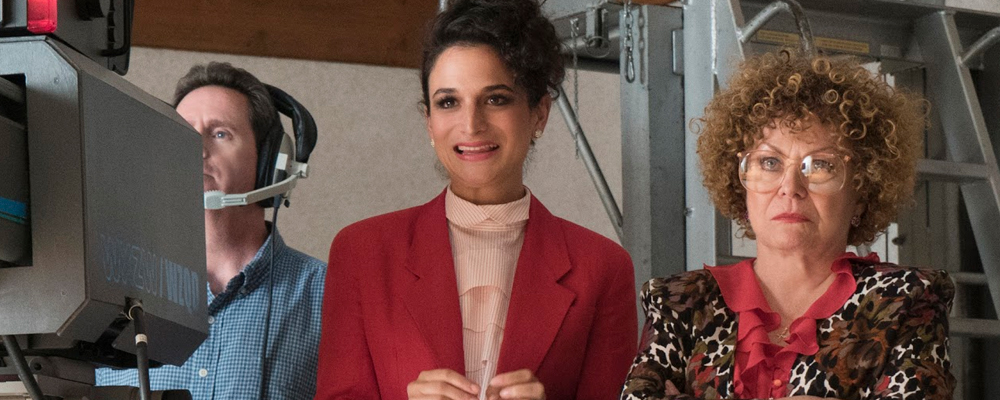Jack Black Turns Netflix’s ‘The Polka King’ Into Entertaining True Crime
Alci Rengifo
Some villains can gain our sympathy because they really just represent universal human folly. “The Polka King” tells the strange and tragically human story of Jan Lewan, a Pennsylvania polka star who just wanted to live the American dream and chased it all the way to prison. What began as a simple investment idea snowballed into a massive Ponzi scheme, all of it hidden behind a polka band that was actually pretty good. Starring Jack Black in one of his best recent performances, this is a film like “I, Tonya” in the way it takes a true crime tale and makes us empathize with a person who isn’t so much full of malice as simply unwise. This is the dark oddball side of the immigrant experience, posing the question of just how far you should go in pursuing riches in the land of opportunity. I found myself continuously shaking my head at Lewan, not out of judgment, but out of pity, oh so relatable pity.
Black plays Lewan as the ultimate go getter in 1980s Pennsylvania. He seeks the good life for himself and his wife Marla (Jenny Slate). There’s also his nagging mother-in-law Barbara (Jacki Weaver), who continuously brings him down over his unstable career choice as a professional polka musician. Even his band feels the pressure of not making real dough. After his lead musician Mickey (Jason Schwartzman) nearly quits, Jan decides to look into getting investors. He already owns a small Polish gift shop and on the side delivers pizzas. “I want to bring everyone into Jan Lewan American success dream,” he tells elderly fans who might be interested in putting in some money. But without doing the proper paperwork, the authorities soon warn Jan what he’s doing isn’t exactly legal. But it’s bringing good money and after assuring the feds that he’s clean, Jan simply starts expanding the books. His dreams get bigger (tours involving private meetings with the Pope are put together) but the money can’t keep up, and soon Jan makes one major, catastrophic decision to please Marla and get his way that could bring down the whole enterprise.
There’s almost no way the story of Jan Lewan can’t be fiction, because it’s simply too offbeat and astounding. The movie was inspired by the 2009 documentary “The Man Who Would Be Polka King,” where you can see for yourself how much of a character the real Lewan is (at one point he had a direct line of contact with Solidarity leader Lech Walesa). Director Maya Forbes wisely decides not to film this story with a straight face. She dives straight into realms of comic opera, bringing Lewan’s world to life with zest (this is true crime featuring dancing chicken and bear costumes after all). The screenplay by Forbes and Wallace Wolodarsky never becomes lurid true crime. Instead it’s an entertaining character study which also serves as a darkly humorous take on the stereotype of the dreaming immigrant. Jan frames everything he does as being part of the American dream. He has the flag everywhere, including on his desk. In one memorable scene he croons “only in America can you reach for the highest star.” Of course he is then a bit puzzled when a government agent won’t take a bribe, and when his wife suddenly feels like becoming a pageant queen he isn’t above finding any way to help her win. Lewan becomes a metaphor for that fascinating combination of strong work ethic and lack of moral insight that is common with most professional hucksters. He’s like Bernie Madoff with killer polka skills.
The heart of the movie is Jack Black, who again creates a great character endlessly watchable in all his strangeness and humanity. This is Black’s best role since 2011’s “Bernie,” another true crime movie where he played a tragic, sympathetic mortician who becomes the friend of a wealthy widow and finds himself becoming a killer almost against his will. In “The Polka King” he is a personality that never rests, driven day and night by his dreams, yet cornering himself. The concert scenes have great, comic energy and Black does an uncanny job becoming Lewan. But the best scenes are the ones where he fully conveys that sense of trapping yourself with your own, bad decisions. He finds himself sitting in his car, feeling the noose tighten, smacking his head with his phone. Black brilliantly creates empathy. We know what Lewan is doing is illegal, but he’s not an unlikeable or evil person, as portrayed in the movie he sincerely motivates his friends and family, infecting them with his boundless energy. There’s a moment of humorous but great tension when we see Lewan scheme an audience with the Pope for his loyal fans, demonstrating how absolutely nothing will stop him, a pity it was energy devoted to fraud. Jenny Slate as Marla is loveable as the dutiful wife who starts wanting to chart her own way when she feels overshadowed by Jan. Jacki Weaver is venomous glee as the brutal voice of realism in the house (“I live in a little place called open your eyes!”).
“The Polka King” is farce and morality tale. Jan Lewan got what was coming to him, but as Forbes presents his story, we live in a world where there is a fine line between greed and legality. Yet rarely are morality tales this entertaining, much in part due to Black’s ability to create a bombastic persona with a sentimental touch. Crime doesn’t pay, but it sure makes for great stories.
“The Polka King” premieres Jan. 12 on Netflix.





